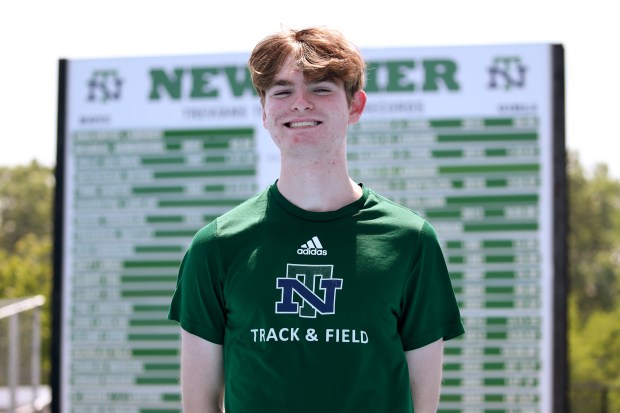Art and science will come together this year as the new guest composer at Fermilab in Batavia aims to create “music to interpret particle science in new ways.”
Chicago composer and pianist Mischa Zupko, an adjunct faculty member of the School of Music at DePaul University, was recently named the 2024 guest composer at the lab by the Fermi Research Alliance. Zupko will be supported in his musical creations by the Civitas Ensemble in Chicago and saxophonist Timothy McAllister.
“From what I have come to understand, the ability to imagine, in a physical sense, phenomena relating to the behavior and interaction of elementary particles is impossible, but the attempt to imagine is where the beauty lies,” he said in a press release about his appointment as guest composer.
The Chicago composer has already delved into music of the stars, math and other sciences in compositions that include pieces like “Eclipse” which “conveys the alignment of the sun and moon,” according to the release, as well as the evening sky as the focal point in his cello piece “From Twilight.”
Georgia Schwender of Geneva, who serves as Fermilab’s visual art coordinator, said the guest artist and composer program has been around for about a decade and that an open call for artists is put out each year.
“It’s open to everybody to apply and then we get submissions in. We have a review board comprised of an artist, a scientist, myself and two others and this changes every year so we have a different lens on every time we pick a new person,” she said. “We go through submissions and then we pick, in this case Mischa, to be the guest composer at Fermilab.”
Zupko, Schwender said, came to Fermilab in January and was given tours “of places the public can’t go with experts that the public doesn’t usually get to interact with.”
“Throughout the year, he’ll be on site and meetings via Zoom and phone calls to educate himself about what we do here at Fermilab and give inspiration to the artwork or musical compositions he will delve into,” Schwender said. “At the end, we hope there is a piece written or art piece made – depending on the person – that they can share with our community and the public.”
Zupko, 52, said he wanted to be part of the program “because I’ve always been very interested in physics and when I saw this opportunity come up it just seemed like a natural.”
“It gives me an opportunity to understand a subject that I’ve liked – talking to scientists at the top of their field and research and ask some of my closet questions,” he said. “Through that process, I’ll also hopefully be inspired to create a piece of music which is either ideas about research or try to embody and make some kind of tangible art piece that will help the general public experience what these people are trying to uncover about the universe and what makes it up.”
The program is tailored individually to each artist and composer, Schwender said.
“Every artist and composer, we try to incorporate them or provide them with opportunities they wouldn’t ordinarily have,” she said. “Mischa has his own ideas about how he’d like to get his music out to the community and we want to make this the best outreach as possible.”
Zupko said the upcoming year “will push me as an artist to think in new ways.”
“Part of my proposal is to create a piece for a specific ensemble. This all came together because I also have a contract to do a recording with Cedille recordings so there are a lot of things coming together,” he said. “As far as creating, sometimes it takes composers years to get the right feel for a piece. The value of being involved with them for a year is that I really get to know some things deep down that can affect the writing process.”
Regarding science and art Schwender insists “scientists and artists are more alike than different.”
“We might want to think they are very curious about their world and they are not doing things one foot in front of the other,” she said. “There is a lot of intersections between art and science and not everybody can understand each of these professions or callings. We are hoping to engage our community and make either art or science more accessible. I wouldn’t read a book on particle science but I would attend a concert. If you want to break it down to its bare minimum, it would be that we’re trying to make the science more accessible to our community.”
Zupko admits he is still “trying to figure out what route I’m going to take” but that he is leaning toward the lab’s “search for dark matter and the ways they are going about it.”
“They know it exists but they can’t see yet,” he said. “I’ve been visiting the lab and seeing the ways they are trying to see it, so trying to see something that is hidden from our view has been really intriguing to me now and I want to manifest that in the sound world.”
David Sharos is a freelance reporter for The Beacon-News.



